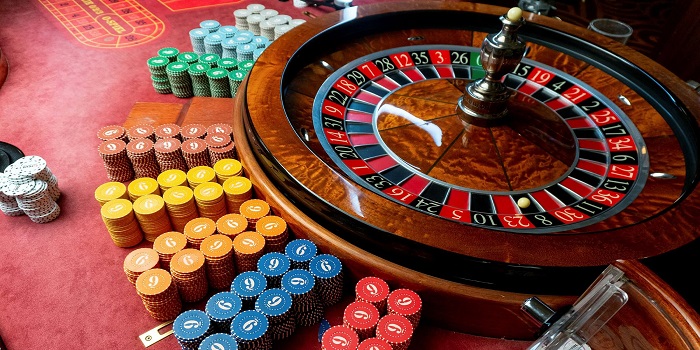The following are American jurisdictions having recent activity concerning legal gambling.
* – States and territories with gaming devices are marked with an asterisk: *
! – States with at least one casino (defined as having both banking card games and slot-like machines) are marked with an exclamation point: !
!* MINNESOTA – Eighteen Indian casinos (more than in Atlantic City) with slots. The Legislature will consider proposals, which will go nowhere, to legalize sports betting (in violation of federal law) and open state-owned casinos, including one for the Minneapolis-St. Paul International Airport, limited to airline passengers, and another to have a state-tribe casino in the metropolitan Twin City area. The first state-licensed card club opened April 19, 2000 at Canterbury Park in Shakopee, doubling the track’s net income, even though it is in direct competition with the Indian-owned Mystic Lake Casino. The Legislature refused to allow a casino constitutional amendment on the ballot, so the 38 tables (50 maximum under the law) offer only poker and player-banked games like pai gow poker — no blackjack or slots. Maximum opening bets $30, raises $60. Bar games, particularly charity pull-tabs, are very big: about $1.5 billion in sales in 1999.
!* MISSISSIPPI – State law allows an unlimited number of dockside and riverboat casinos; there are now approximately 30. Mississippi has become the third largest (non-Indian) casino state, with gross gaming revenue of $2.7 billion in 2000, about 80% from more than 35,000 slot machines. The US Census found Mississippi led the country in revenue growth and job creation between 1992 and 1997. A tribal casino, the Silver Star, has made the Choctaws a powerful political force. The State Supreme Court ruled that race and sports books are still illegal, despite provisions in the Gaming Control Act specifically allowing “sports pools.” It also threw out the third attempt by casino opponents, led by Elizabeth Stoner, to ban gaming by initiative. A new regulation allows casino employees to play everything but progressive slots. The State Supreme Court reiterated that amusement machines which dispense valuable coupons by chance, upon the insertion of a coin, are illegal slot machines.
!* MISSOURI – There are now eleven Casino Malaysia casinos, with gross gaming revenue of $1 billion a year. It took four elections to make casinos legal. In early 1994, the State Supreme Court nearly destroyed the state’s new riverboat casino industry by limiting boats to games with some skill. The Nov. 1994 election amended the state constitution to allow slot machines, keno, bingo and other games of pure chance. The Court then ruled casinos must be on a river (Station Casino agreed to pay a $75,000 fine for using city tap water for its “river”). The voters amended their constitution once again, to make boats-in-a-moat legal. The industry is trying, again, to lift the $500 limit on gambling losses. This time it has the support of the Missouri Gaming Commission. Gov. Carnahan gave the $500 limit as his reason for vetoing a “Chuck E. Cheese” bill, which would have allowed amusement games with noncash prizes up to $250. The casino tax rate, 29.5&, is the second highest in the nation, just behind Illinois. A bill in Congress would bar Indian casinos from Branson. An initiative to allow fraternal and charitable groups to have slots is gathering signatures.


